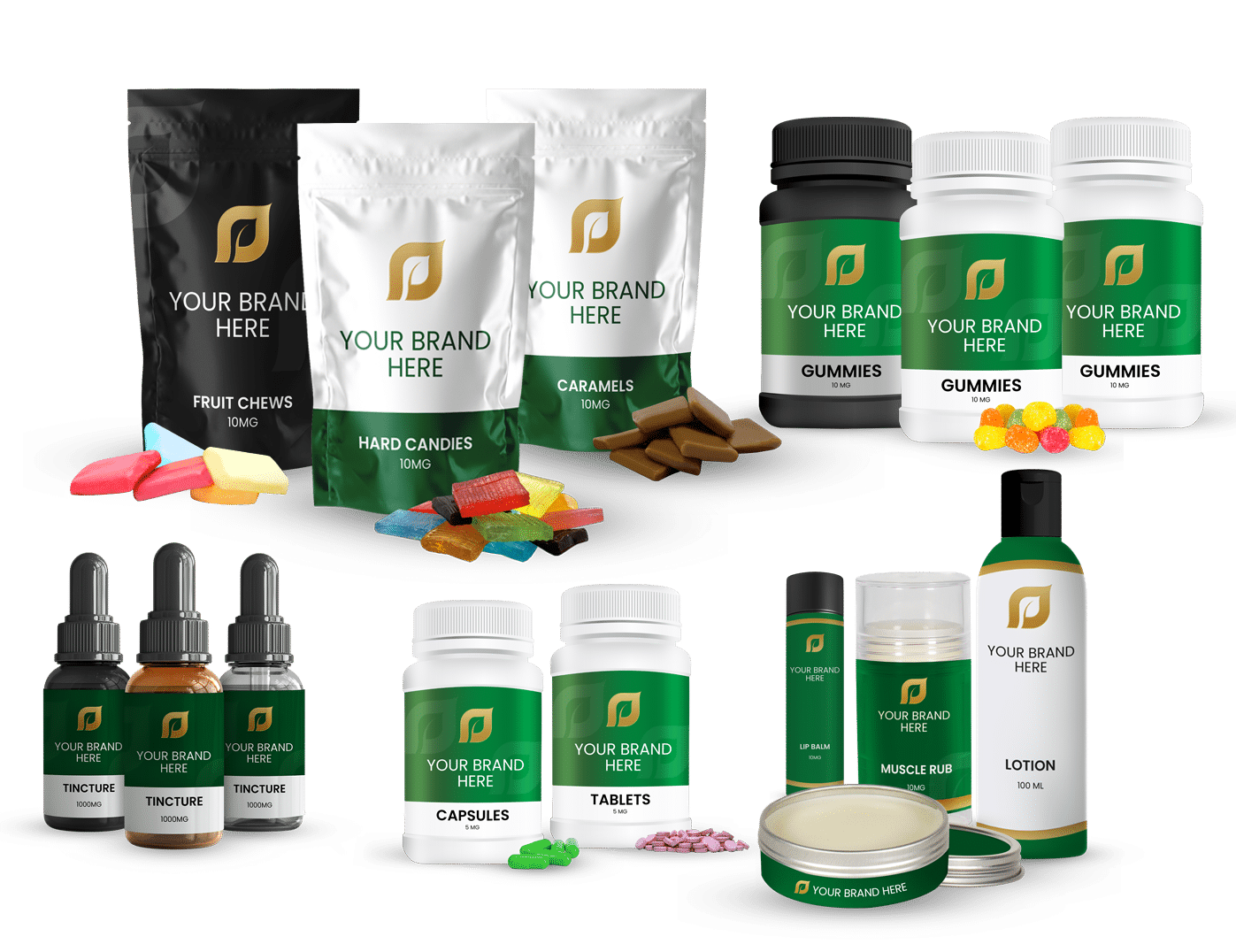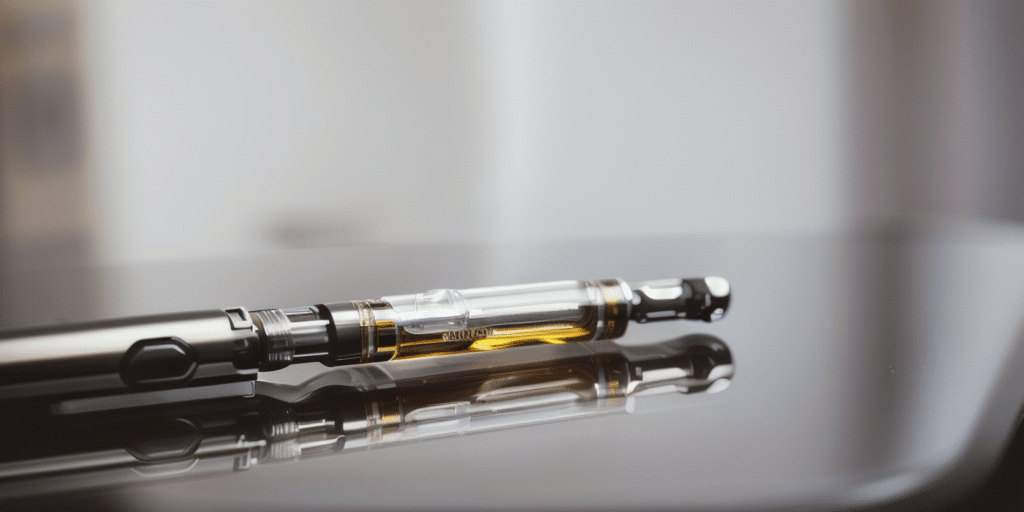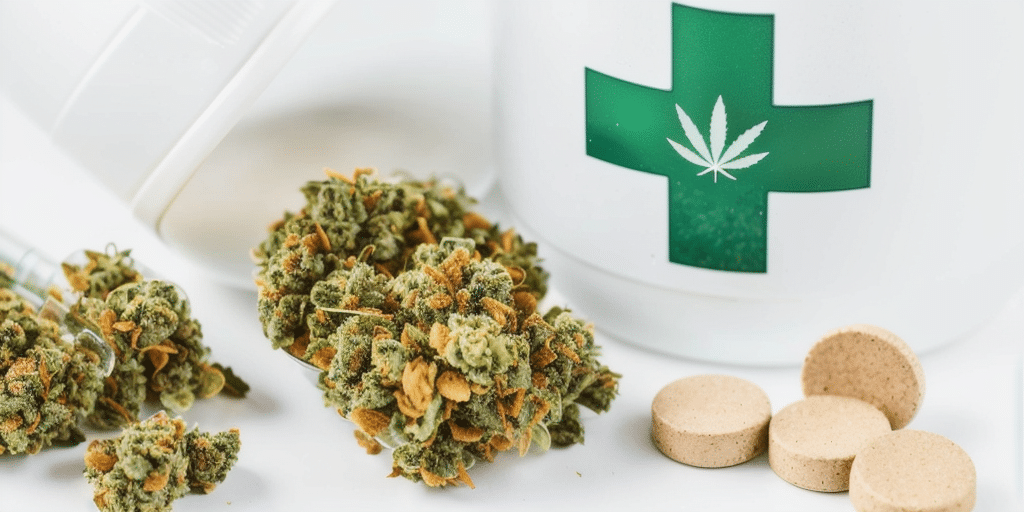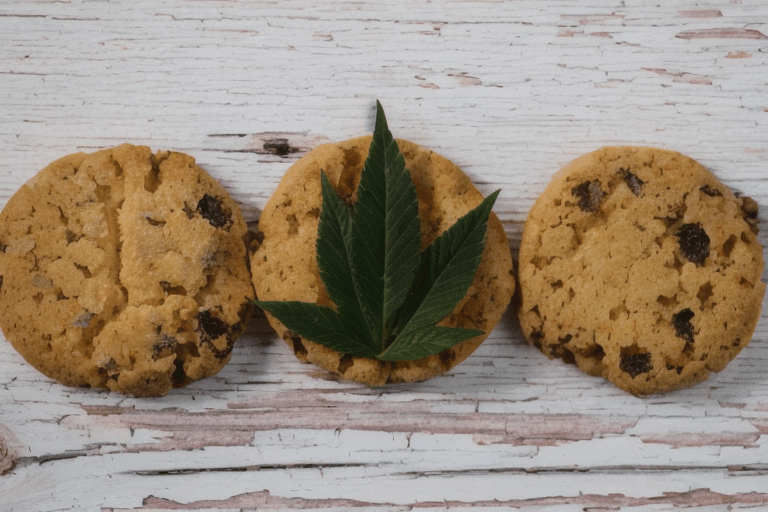Table of Contents
ToggleExploring Delta 9-THC: Definition, Comparison, and Regulations
Delta 9-tetrahydrocannabinol (Delta 9-THC) is a captivating molecule that has intrigued scientists, medical professionals, and recreational users alike. In this section, we’ll delve into the discovery of Delta 9-THC, compare it to its close relatives Delta 8 and Delta 10 THC, and discuss its legal status and FDA regulations.
Unraveling Delta 9-THC: Discovery and Significance
Discovered by Israeli scientist Raphael Mechoulam, Delta 9-THC is the active component in the Cannabis sativa plant responsible for its psychoactive effects. It is one of nearly 113 molecular components found in the plant, including other cannabinoids like CBD, CBG, and CBN, as well as various flavonoids and terpenes. Mechoulam also formulated the endocannabinoid system (ECS) theory, elucidating how cannabinoids function within the human body. Delta 9-THC is extracted from hemp plants’ structural parts and purified using liquid solvents. Other forms, like delta 8 and delta 10, are generated during the extraction process.
Contrasting Delta 9 with Delta 8 and Delta 10 THC
Although Delta 9-THC is renowned for its psychoactive effects, it shares similarities with its lesser-known relatives Delta-8 and Delta 10 THC. All three exhibit common effects such as mild euphoria and relaxation; however, Delta 8 is less potent than Delta 9. Meanwhile, Delta 10 remains relatively new to research, with its effects not yet fully comprehended.
Navigating Legal Status and FDA Regulations
Delta 9-THC’s legal status depends on one’s location. In the United States, the FDA limits delta 9 THC content in CBD products to 0.3 percent. However, the proposed Hemp Advancement Act of 2022 could raise this limit to 1 percent. It is crucial to stay updated on local regulations and restrictions regarding Delta 9-THC and other cannabinoids.
In conclusion, Delta 9-THC is a fascinating and intricate molecule with a rich history in discovery and research. As we uncover more about its properties, effects, and potential benefits, it’s vital to remain informed about legal regulations and product options. A balanced approach to understanding Delta 9-THC allows us to appreciate its unique role in cannabis and cannabinoid science.
Do you need custom private label Delta 9 products produced for your cannabis business?
SEE WHAT WE CAN DO
Do you need custom private label Delta-9 products produced for your CBD business?
SEE WHAT WE CAN DO
Endocannabinoid System (ECS) and Its Interactions
Balancing Act: The ECS’s Role in Homeostasis
The endocannabinoid system (ECS) is a vital cell-signaling mechanism that maintains homeostasis, or balance, within our bodies. By regulating physiological processes like mood, appetite, sleep, and immune response, the ECS ensures harmonious functioning and overall well-being.
Delta 9-THC: Influencing the ECS
Delta 9-tetrahydrocannabinol (Delta 9-THC), a prominent cannabinoid in cannabis plants, directly interacts with the ECS. Upon consumption, it binds to specific ECS receptors called CB1 and CB2, predominantly located in the brain and immune system, respectively.
Delta 9-THC’s interaction with CB1 receptors triggers psychoactive effects such as euphoria and altered perception. Conversely, its engagement with CB2 receptors modulates inflammation and pain response. Consequently, Delta 9-THC can influence various health aspects.
However, it is crucial to consider that while some effects may be beneficial, others could pose risks or side effects depending on factors like dosage and individual tolerance.
Exploring Delta 9-THC: A Multifaceted Cannabinoid
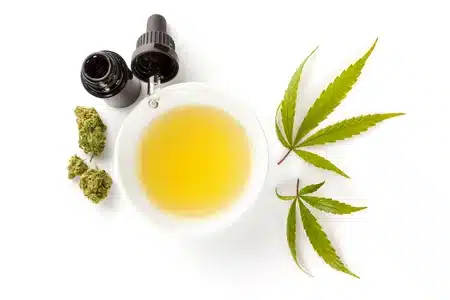
Delta 9-tetrahydrocannabinol (Delta 9-THC), a well-known cannabinoid, has garnered attention for its potential health benefits in various sectors, including athletics. Its diverse applications range from sleep aid to post-workout recovery and overall well-being enhancement.
Sleep Enhancement
Delta 9-THC’s most prominent advantage lies in its capacity to foster healthy sleep patterns. By inducing relaxation and tranquility, it can expedite the process of falling asleep and improve sleep quality.
Anxiety Alleviation and Mood Stabilization
This cannabinoid may also contribute to anxiety reduction and mood regulation. Its soothing effects can mitigate stress and foster mental well-being, making it an appealing alternative for those seeking natural anxiety remedies.
Appetite Stimulation
Delta 9-THC can potentially boost appetite, which is particularly beneficial for individuals struggling with weight maintenance or experiencing appetite loss due to specific conditions.
Pain Relief and Anti-Inflammatory Properties
Research indicates that Delta 9-THC can alleviate pain and inflammation, making it a popular option for those with chronic pain or recovering from injuries. Its anti-inflammatory properties may also facilitate post-workout recovery by reducing muscle soreness and inflammation.
Nausea Mitigation
For those experiencing nausea as a result of medical conditions or treatments, Delta 9-THC may provide relief. Its antiemetic properties can diminish nausea sensations and prevent vomiting, thereby enhancing overall quality of life.
Synergistic Effects with Other Cannabinoids
Delta 9-THC interacts with other cannabinoids present in cannabis plants to produce the “entourage effect.” This synergistic relationship amplifies the individual benefits of each cannabinoid, leading to a more potent therapeutic experience.
In summary, Delta 9-THC presents an array of potential benefits that can bolster overall well-being and support various health aspects. Ranging from sleep enhancement to pain relief, this cannabinoid holds the potential to positively impact numerous lives. However, it is crucial to consult a healthcare professional before incorporating Delta 9-THC into your wellness regimen and remain informed about its legal status and associated regulations.
IV. Medical Applications of Delta 9-THC
Delta 9-Tetrahydrocannabinol (delta 9-THC), a primary psychoactive compound in cannabis, has demonstrated potential in treating various medical conditions such as rheumatoid arthritis, neuropathic pain, multiple sclerosis, and fibromyalgia.
A. Rheumatoid Arthritis
B. Neuropathic Pain Alleviation
Delta 9-THC shows promise as a coanalgesic for central neuropathic pain and fibromyalgia. In a study with 172 patients, an average dose of 7.5 mg delta 9-THC over seven months led to reduced pain intensity and improved scores on several pain-related scales. However, some patients experienced side effects or insufficient analgesia, with 25% not tolerating the treatment.
Despite these challenges, delta 9-THC reduced opioid doses for many patients and decreased the use of other analgesics. Pain intensity improved from severe to moderate levels after treatment, with an average duration of 217 days.
C. Multiple Sclerosis Symptom Relief
D. Fibromyalgia Treatment
As previously mentioned, delta 9-THC has shown potential in treating fibromyalgia, a chronic pain condition affecting millions globally. The study discussed earlier included fibromyalgia patients who experienced reduced pain intensity and improved quality of life during delta 9-THC treatment.
In conclusion, delta 9-THC offers potential benefits for various medical applications; however, more research is needed to fully understand its advantages and risks and determine optimal dosages and administration methods for each condition.
Delta 9-THC: Balancing Benefits and Risks
Delta 9-THC, a cannabinoid praised for its potential benefits, also carries risks and side effects that warrant careful consideration. In this section, we will examine its cognitive and psychological impacts, long-term effects, potential risks, and guidelines for safe usage.
Cognitive and Psychological Impacts
Delta 9-THC possesses psychoactive properties that can cause cognitive and psychological effects such as short-term memory impairment, altered judgment, impaired motor skills, paranoia, or anxiety. Being aware of these potential side effects is crucial when using Delta 9-THC products.
Long-term Effects and Potential Risks
Research on Delta 9-THC’s long-term effects is ongoing; however, some studies indicate that prolonged use may lead to addiction or dependence. Additionally, there is evidence suggesting that long-term use could negatively affect cognitive function and mental health in certain individuals. It is essential to weigh the potential benefits against the possible risks when considering Delta 9-THC use.
Precautions and Dosage Recommendations
To minimize risks associated with Delta 9-THC use, adhere to proper precautions and dosage recommendations. Begin with a low dose and gradually increase as needed while monitoring your body’s response. If you are new to THC products or have experienced adverse reactions to cannabis in the past, consult a healthcare professional before incorporating Delta 9-THC into your routine.
Exercise caution when combining Delta 9-THC with other substances like alcohol or prescription medications to avoid increased side effects or negative interactions. Prioritize safety when using any cannabinoid product.
In conclusion, while Delta 9-THC offers numerous potential benefits, it is vital to be aware of the risks and side effects associated with its use. By following proper precautions and dosage recommendations, you can make informed decisions about incorporating Delta 9-THC into your wellness routine.
Delta 9-THC Variants and Consumption Methods
Delta-8-tetrahydrocannabinol (delta-8-THC), a hemp-derived analog of delta-9-THC, gained legal status through the 2018 U.S. Farm Bill. A comprehensive survey by researchers from the University at Buffalo and the University of Michigan, published in Cannabis and Cannabinoid Research and the Journal of Cannabis Research, explored users’ experiences with delta-8-THC. Over 500 participants reported that delta-8-THC offered similar benefits to delta-9-THC, such as relaxation, pain relief, and euphoria, but with fewer adverse effects. Delta-8-THC is approximately half as potent as delta-9-THC and is primarily consumed in edibles like gummies or brownies.
Edibles
Edibles are a favored method for consuming delta 9-THC, particularly for non-smokers. Available in various forms like gummies, brownies, and cookies, edibles offer an enjoyable and discreet option. They have a slower onset compared to other methods but can last longer due to their metabolic process in the body.
Tinctures
Tinctures provide another way to consume delta 9-THC, either sublingually (under the tongue) or mixed with food and drinks. This method enables rapid absorption into the bloodstream and more accurate dosing than edibles. Tinctures come in different strengths and flavors to suit individual preferences.
Vaping Cartridges
Vaping cartridges present a smoke-free alternative for those seeking quick effects. These cartridges contain concentrated delta 9-THC oil that is heated and inhaled using a vaporizer device. Vaping is considered less harsh on the lungs than smoking and allows better dosage control. However, it is crucial to use high-quality cartridges from reliable sources for safety and efficacy.
Topical Lotions
Infused with delta 9-THC, topical lotions can be applied directly to the skin for localized relief of pain, inflammation, or skin conditions. These products do not induce psychoactive effects, making them suitable for users seeking therapeutic benefits without the “high” associated with other THC consumption methods. Topicals are available in various formulations like creams, balms, and salves to cater to individual needs.
Navigating Delta 9-THC’s Legal Landscape
To comprehend the legal intricacies of Delta 9-THC, a cannabinoid found in cannabis, we must examine federal regulations, state-specific laws, and potential legislation such as the Hemp Advancement Act of 2022.
Federal Oversight of Delta 9-THC in CBD Products
Delta 9-THC is subject to distinct federal regulations compared to its counterparts, Delta 8 and Delta 10 THC. The 2018 Farm Bill legalized hemp-derived CBD products with less than 0.3% Delta 9-THC. However, exceeding this threshold classifies it as a Schedule I controlled substance under the Controlled Substances Act, imposing strict regulations and possible legal ramifications.
State-Level Restrictions on Delta 9-THC
State laws concerning Delta 9-THC vary significantly. Some states permit both medical and recreational cannabis use, while others enforce strict limitations on THC content in CBD products or only allow medical usage. Consumers must familiarize themselves with their state’s specific regulations to avoid legal complications.
The Hemp Advancement Act of 2022: A Potential Game-Changer
The proposed Hemp Advancement Act of 2022 seeks to clarify the legal status of hemp-derived cannabinoids like Delta 9-THC. If enacted, it would offer guidance on testing requirements, labeling standards, and other regulatory aspects for hemp-derived products, potentially creating a more consistent framework for producers and consumers.
In conclusion, understanding the legal nuances surrounding Delta 9-THC is crucial for both manufacturers and users. Staying informed about federal and state regulations and potential legislation like the Hemp Advancement Act of 2022 ensures safe and lawful engagement with this intriguing cannabinoid.
Decoding Delta 9-THC Products: A Concise Guide
Selecting the right Delta 9-THC product might seem overwhelming, but worry not! This guide will help you identify and choose suitable products by understanding full-spectrum CBD labeling, THC content, and reliable sources and research.
Full-spectrum CBD Labeling
To ascertain if a CBD product contains Delta 9-THC, look for “full spectrum CBD” or “broad spectrum CBD” labels. These terms imply that the product includes various cannabinoids, such as Delta 9-THC. Full-spectrum products comprise all natural compounds in the cannabis plant, while broad-spectrum products exclude some compounds like THC. However, scrutinizing product labeling is crucial to ensure you get what you expect.
THC Content Information
Examine product labels for THC content or percentages. If unavailable on the label or packaging, contact the company directly for their product’s THC content. Many companies willingly share their products’ cannabinoid profiles.
Certificates of Analysis (COAs) on company websites offer another way to verify THC content. COAs are third-party lab test results detailing a product’s cannabinoid profile, potency, and purity. Reviewing these documents helps confirm the presence and concentration of Delta 9-THC in a CBD product.
Trustworthy Sources and Research
Rely on reputable sources and research when choosing Delta 9-THC products. Opt for companies with a strong industry reputation and positive customer reviews. Prioritize brands that emphasize transparency by providing comprehensive product information and COAs.
Conduct your own research by staying updated on scientific studies and news about Delta 9-THC to learn about potential benefits, risks, and legal aspects. By remaining informed and vigilant, you can confidently navigate the world of Delta 9-THC products and make well-informed decisions tailored to your needs.
Conclusion
As we conclude our examination of Delta 9-THC, it is crucial to emphasize the need for ongoing research in this field.
The Imperative of Continued Delta 9-THC Research
Considering that 51% of participants use delta-8-THC to address various health issues, such as anxiety, stress, depression, and chronic pain, there is a clear demand for effective cannabinoid-based treatments. However, 78% of these individuals did not consult their primary care providers due to doubts about their physicians’ ability to incorporate medical cannabis into treatment plans. This underlines the necessity for further research and education on Delta 9-THC and other cannabinoids, enabling healthcare professionals to better comprehend and employ these compounds in patient care.
Weighing Potential Advantages and Hazards
Although participants reported minimal paranoia and anxiety with delta-8-THC, they lacked knowledge about proper dosages and primarily relied on online sources or personal experiences. This highlights the importance of weighing the potential benefits and risks associated with Delta 9-THC use. As more research emerges, we will gain a better understanding of appropriate dosages and potential side effects, empowering users to make well-informed decisions regarding their cannabinoid consumption.
Navigating Regulatory Complexities and Product Selection
Lastly, navigating the intricate realm of regulations and product choices can be daunting for consumers interested in exploring Delta 9-THC’s benefits. As federal and state laws evolve, it is essential for individuals to stay informed about these compounds’ legal status in their region. Moreover, learning how to identify trustworthy sources and evidence-based products will help ensure users select safe and effective options.
In summary, Delta 9-THC offers significant promise as a therapeutic compound with numerous potential benefits. By persisting in research efforts, balancing potential advantages and risks, and navigating the complex regulatory environment, we can fully harness this intriguing cannabinoid’s potential.

